Shannon E. Budin, Ph.D.
Horace Mann Endowed Chair Ketchum Hall 110BOffice: (716) 878-5307
Email: gormlese@buffalostate.edu
Dr. Shannon Budin joined Buffalo State faculty in 2005 after earning her Ph.D. in special education at Pennsylvania State University.
Dr. Budin teaches courses in the area of reading disabilities, applied behavior analysis, direct instruction, and instructional technology. In addition, Dr. Budin holds faculty status at the University at Buffalo and provides assistance to the doctoral students in the Joint Program in Special Education.
Dr. Budin is actively involved in several professional organizations including the New York State Council for Exceptional Children (past-president), the Division for Learning Disabilities (newsletter editor and former secretary), and the Western New York Branch of the International Dyslexia Association.
Dr. Budin is also on the editorial board of several journals including Learning Disabilities Research and Practice, The Teacher Educator, and Teaching Exceptional Children-Plus.
Her areas of professional interest include the use of evidence-based practice for teaching students with disabilities, language-based reading disabilities, and teacher preparation and professional development.
Select Recent Publications
- Loewer, G., McKeone, C., Owczarczak, J., Budin, S., Doody, K., Maheady, L., & Rafferty L. (in press). Writing Rockstar: An independent group contingency for improving classroom behavior during Writer’s Workshop. In Cook & Landrum (Eds)., Advances in Learning and Behavioral Disorders.
- Budin, S., Hashey, A., & Jasper, A. (in press). Heart and science of leadership. In Markelz (Ed), The Heart and Science of Special Education. Council for Exceptional Children.
- Budin, S. (2024). Three approaches to using mixed reality simulations for teacher preparation and recruitment of future teachers. Education Sciences, 14(1), 75. https://doi.org/10.3390/educsci14010075
- Budin, S., Patti, A. L., & Rafferty, L. A. (2022). Teaching cognitive and metacognitive strategies to support learning and Independence. High Leverage Practices for Inclusive Classrooms, 201–217. https://doi.org/10.4324/9781003148609-20

